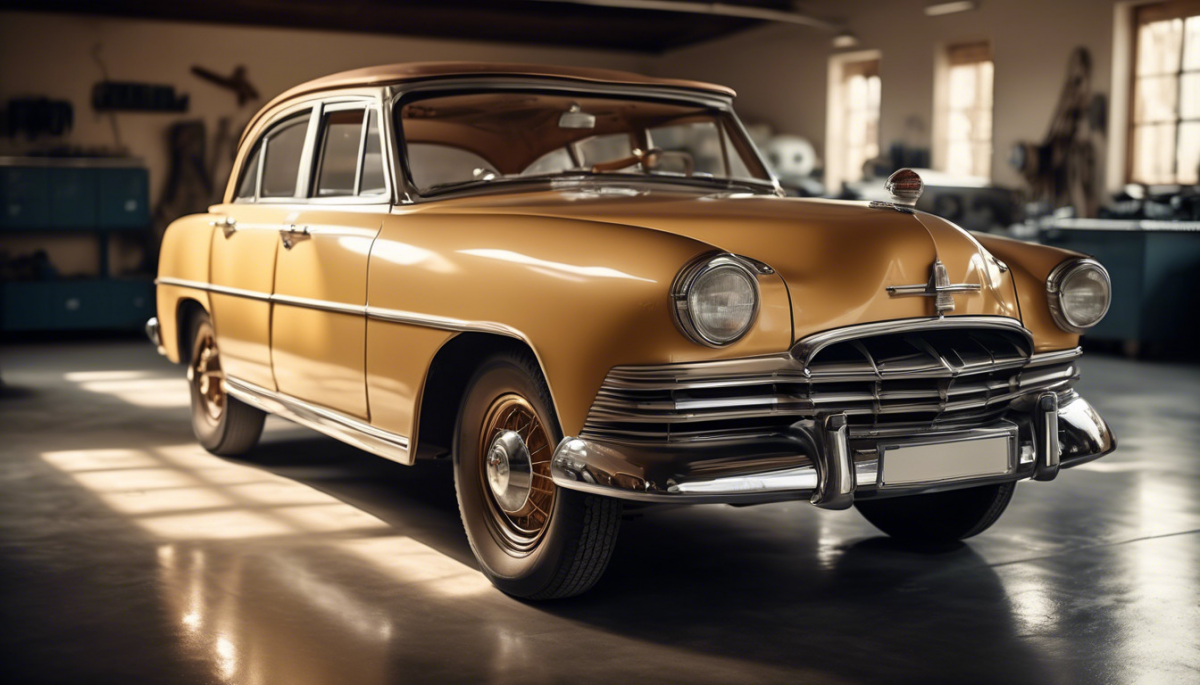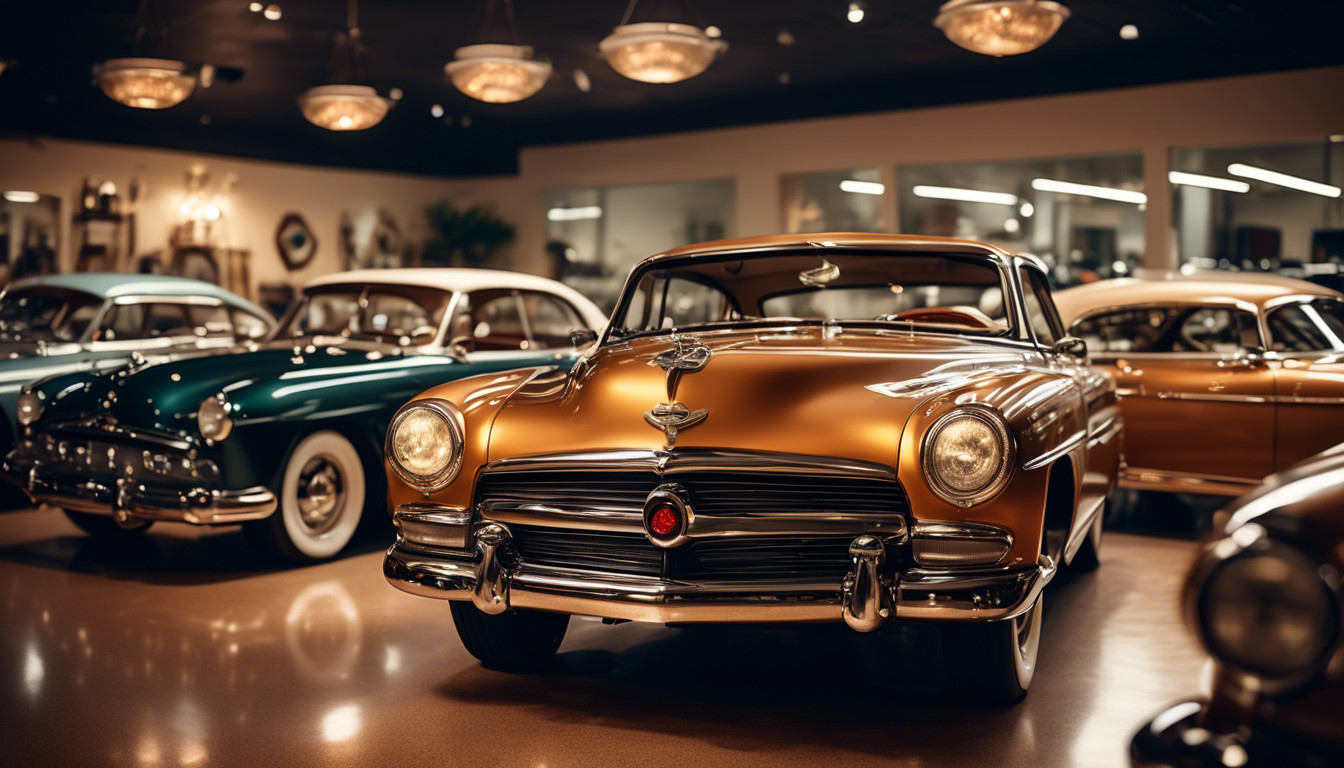The valuation of collector cars in today’s market is an intricate process influenced by a myriad of factors, ranging from historical significance to aesthetic appeal. The collector car market has experienced significant fluctuations over the years, driven by changes in consumer preferences, economic conditions, and technological advancements.
Key Elements Influencing Collector Car Valuation:
- Rarity: Cars that are rare tend to have higher values due to limited availability.
- Provenance: The history of a car, including previous ownership and its story, can greatly enhance its value.
- Condition: A well-maintained vehicle is more likely to fetch a higher price.
- Originality: Cars that retain their original parts and features are typically more valuable.
Additionally, market trends and auction results provide valuable insights into current valuations. Understanding these nuances is essential for enthusiasts, investors, and industry professionals alike.
This article explores the complexities involved in assessing the value of collector cars, offering an in-depth analysis of the various components that impact pricing. By examining historical data and expert opinions, a comprehensive understanding of the market can be achieved.
Such understanding enables informed decisions and fosters appreciation for the unique attributes that define each collector vehicle.
Factors Affecting Collector Car Values
Several key factors influence the values of collector cars, including rarity, historical significance, condition, and market demand.
Provenance, encompassing a vehicle’s ownership history and documented lineage, plays a crucial role in establishing its worth. Vehicles with well-documented provenance often command higher values due to their traceable history, which adds a layer of prestige and authenticity sought by collectors.
Originality is another vital consideration. It refers to the extent to which a car retains its original components and factory specifications. Cars that maintain a high degree of originality tend to attract more interest and higher bids at auctions.
Auction results often reflect the perceived value of these factors, providing a benchmark for current market trends. Analyzing past auction results offers insights into how provenance and originality impact the final sale prices of collector cars.
Understanding these elements fosters a sense of belonging within the collector community, where there is a shared appreciation for automotive history and authenticity.
Importance of Provenance in Valuation
A well-documented ownership history significantly boosts a collector car’s valuation by adding a layer of authenticity and prestige. Provenance is the historical record that traces the car’s lineage, detailing previous owners, notable events, and original documentation. This traceability establishes the car’s authenticity, making it more desirable in the market.
Collectors and enthusiasts often seek vehicles with a clear and prestigious provenance because it creates a sense of belonging to an exclusive group that values heritage and originality.
Auction results consistently demonstrate the impact of provenance on a car’s market value. Cars with storied histories, such as:
- Ownership by celebrities
- Participation in significant events
often command higher prices. The originality of a car, when paired with a compelling provenance, further elevates its desirability.
As a result, auction houses place great emphasis on detailed documentation and historical narratives when presenting vehicles to potential buyers. An illustrious provenance not only enhances market value but also strengthens the car’s legacy within the collector community.

Significance of Condition and Originality
A collector car’s condition and originality are crucial in determining its market value and appeal. Prospective buyers and collectors emphasize these aspects as indicators of a vehicle’s historical authenticity and preservation quality.
Originality refers to how closely a car retains its factory specifications. This includes:
- Original parts
- Paint
- Interior
Maintaining originality enhances a vehicle’s provenance, establishing a direct connection to its past and adding intrinsic value.
Condition involves the physical state of the car, assessing factors such as:
- Mechanical functionality
- Aesthetic appearance
Cars meticulously maintained or restored to their original condition typically command higher prices at auction.
Auction results consistently show that vehicles with pristine condition and high levels of originality achieve stronger bids. Collectors value the authenticity these cars represent, enhancing their desirability and solidifying their position as sought-after assets within the collector car community.

Analyzing Market Trends and Auction Results
Analyzing current market trends and auction results reveals significant insights into the factors driving collector car values.
The importance of provenance and originality continues to dominate the landscape, influencing buyer preferences and vehicle valuations.
- Provenance: The documented history of a car can elevate its status, particularly if associated with notable owners or events.
- Originality: This refers to the extent that a car retains its original components and features, serving as a key determinant of value and appealing to connoisseurs seeking authenticity.
Recent auction results highlight these trends, with vehicles exhibiting strong provenance and originality achieving premium prices.
- The market shows a preference for cars with verifiable histories and minimal modifications, underscoring the value placed on authenticity.
- Auction data further indicates an increasing interest in rare models, often resulting in competitive bidding.
Buyers are recognizing the investment potential of vehicles with documented provenance and originality. This ensures that collector cars with these attributes remain desirable within the community, fostering a sense of belonging among enthusiasts.
